Eventos
Over two years since the COVID-19 pandemic shut down cross-border mobility, most countries are rapidly re-opening for travel. Yet there has been no global stock-taking on whether border and mobility policies worked in reducing the spread of the virus. Instead, a complex web of border closures and

The main objective of the event is to identify the common gaps and challenges for strengthened and enabled integration of returnee women migrant workers especially those who return with incomplete labor migration and are compelled to go through illegal channel of migration. The specific objectives

Following the GCM regional reviews organized by the UN Regional Commissions and their respective partners in 2020 and 2021, the Regional Commissions will hold a side-event to reflect on gaps, challenges, and opportunities in implementing the GCM across their respective regions. Identifying synergies

This side meeting will provide a space for States and other stakeholders to exchange experiences on working to end child immigration detention, and to hear from others working on this issue, including an advocate with lived experience of immigration detention, a presentation by the International

The event aims to discuss the different regional experiences of the several vaccination strategies where the approach of people on the move and migrant people where or where not included, towards the fostering of future experiences sharing between governments, international cooperation, and academia

Gendered experiences in migration occur along a continuum (origin-, transit-, and destination country): based on a country’s policies, gender dynamics might premise the reason for migration but might also affect experiences along migratory routes and in destination countries. Along this continuum
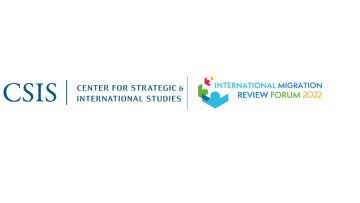
Over the last nine years, conflict and state fragility have triggered an increase in global displacement: 82.4 million people at the end of 2020. The total number of international migrants is several orders of magnitude higher. Technological “solutions” are increasingly being used to manage
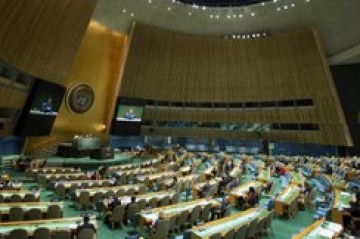
The participation of the delegation of Kazakhstan at the International Migration Review Forum (IMRF)
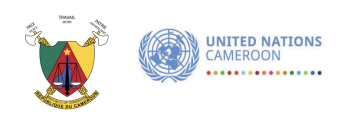
Since 2019, the Secretary-General, responding to a request by the Government of Cameroon, declared Cameroon eligible for funding under the Peace Building Fund (PBF) Peacebuilding and Recovery Facility for five years. Since then, the PBF has progressively become one of the critical sources of
The side-event aims to exchange experiences that the region has implemented to strengthen the resilience of families and communities to the effects of climate change, promoting food security, adaptation and resilience, addressing other climate vulnerabilities that impact local, regional and

Many countries at various income levels around the world are suffering from a shortage of skilled personnel within key industries—healthcare; agriculture; information and communications technology (ICT) and electronics; apparel; tourism and hospitality—inhibiting the productivity and growth of their

Linkages between climate change, human mobility, and security are complex, multidirectional, and non-linear. The adverse effects of climate variability and extreme weather events on climate-sensitive, agricultural-based livelihoods can impact migrant agency and decision making, force people to move
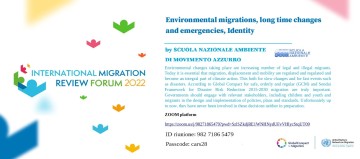
Environmental changes taking place are increasing number of legal and illegal migrants. Today it is essential that migration, displacement and mobility are regulated and regulated and become an integral part of climate action. This both for slow changes and for fast events such as disasters
The Global Compact for Migration (Global Compact), adopted in 2018, is a significant commitment from governments to take a people centered and human rights-based approach to migration policy and to work together towards the achievement of its objectives. This focus on people and on migrants as

In the African continent, the Intergovernmental Authority on Development (IGAD) region is considered one of the most vulnerable to climate variability and change and more than two thirds of the region are arid or semi-arid. It regularly faces a wide range of natural hazards leading to various forms
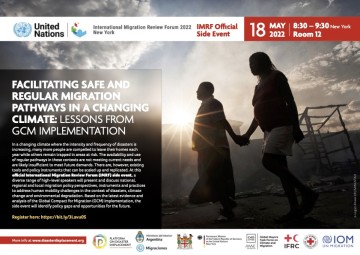
Every year, millions of people are compelled to move in the context of sudden-onset disasters, while the livelihoods of millions more are affected by slow-onset climate change and environmental degradation, with many leaving their homes, and others remaining trapped in areas at risk. Unless such

The GCM has highlighted the importance of multi-stakeholder approaches, including engagement with the private sector together with other non-governmental stakeholders, as part of more comprehensive solutions to migration and development. The resources and unique capabilities of the private sector
Pagination
About the Migration Network Hub
What is the Migration Network Hub?
The Hub is a virtual “meeting space” where governments, stakeholders and experts can access and share migration-related information and services. It provides curated content, analysis and information on a variety of topics.
The Hub aims to support UN Member States in the implementation, follow-up and review of the Global Compact for Migration by serving as a repository of existing evidence, practices and initiatives, and facilitating access to knowledge sharing via online discussions, an expert database and demand-driven, tailor-made solutions (launching in 2021).
Submit your content
What content is displayed in the Hub?
The Hub aims to help you find information on migration, ranging from policy briefs and journal articles, existing portals and platforms and what they offer, to infographics and videos. The different types of resources submitted by users undergo peer review by a panel of experts from within the UN and beyond, before being approved for inclusion in the Hub. To provide guidance to users based on findings of the needs assessment, the content is ordered so that more comprehensive and global resources are shown before more specific and regional ones. Know a great resource? Please submit using the links above and your suggestion will be reviewed. Please see the draft criteria for existing practices here.
Apply to join the Peer Review Roster
Content submitted to the Migration Network Hub is first peer reviewed by experts in the field from both the UN and beyond. Applications are welcomed to join the roster on an ongoing basis. Learn more here.
Contact us
We welcome your feedback and suggestions, please contact us
*Todas las referencias a Kosovo deben entenderse en el contexto de la Resolución 1244 [1999] del Consejo de Seguridad de las Naciones Unidas.
Newsletter
Subscribe to our newsletter.